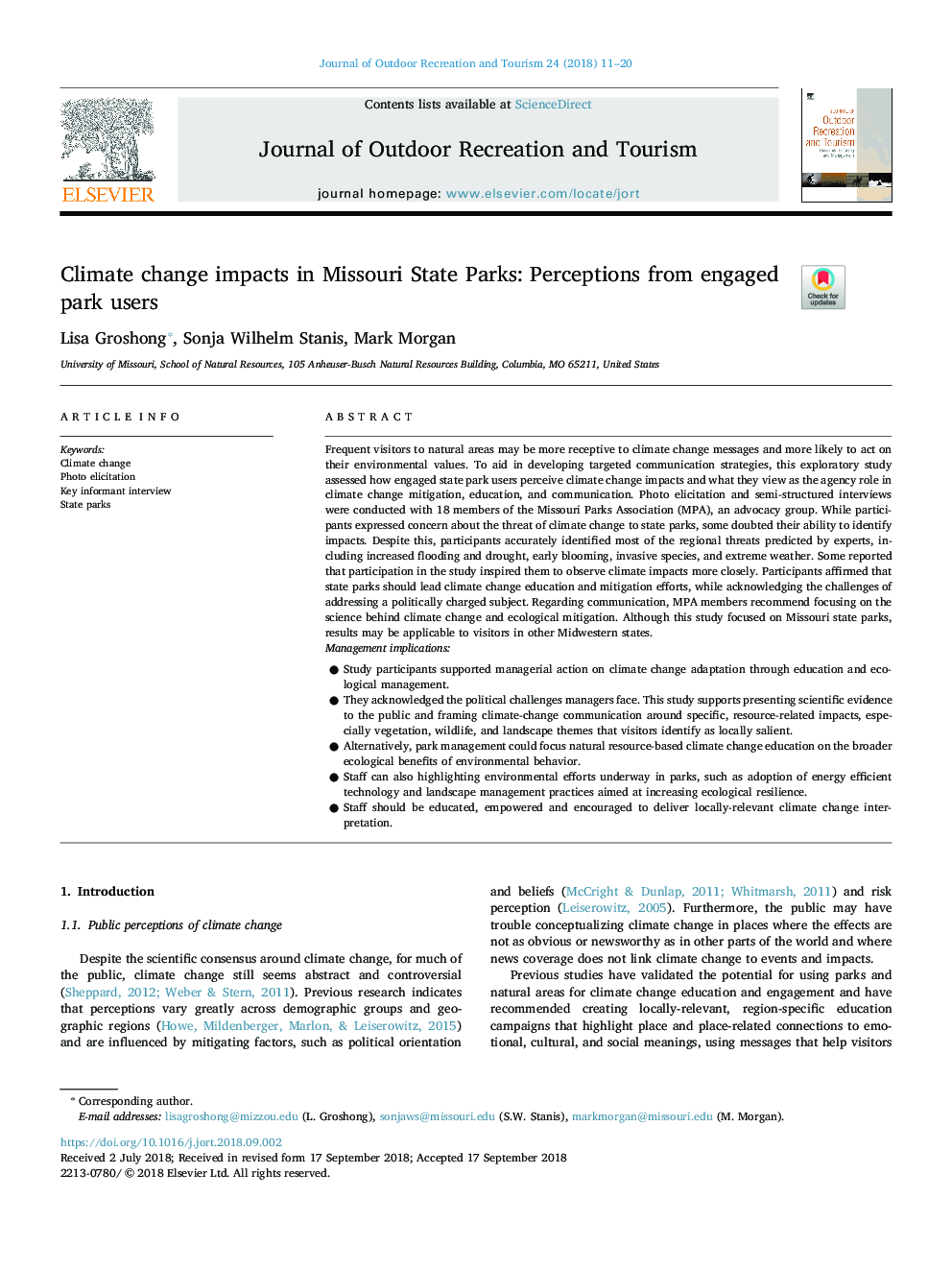| Article ID | Journal | Published Year | Pages | File Type |
|---|---|---|---|---|
| 11021480 | Journal of Outdoor Recreation and Tourism | 2018 | 10 Pages |
Abstract
Frequent visitors to natural areas may be more receptive to climate change messages and more likely to act on their environmental values. To aid in developing targeted communication strategies, this exploratory study assessed how engaged state park users perceive climate change impacts and what they view as the agency role in climate change mitigation, education, and communication. Photo elicitation and semi-structured interviews were conducted with 18 members of the Missouri Parks Association (MPA), an advocacy group. While participants expressed concern about the threat of climate change to state parks, some doubted their ability to identify impacts. Despite this, participants accurately identified most of the regional threats predicted by experts, including increased flooding and drought, early blooming, invasive species, and extreme weather. Some reported that participation in the study inspired them to observe climate impacts more closely. Participants affirmed that state parks should lead climate change education and mitigation efforts, while acknowledging the challenges of addressing a politically charged subject. Regarding communication, MPA members recommend focusing on the science behind climate change and ecological mitigation. Although this study focused on Missouri state parks, results may be applicable to visitors in other Midwestern states.Management implicationsâStudy participants supported managerial action on climate change adaptation through education and ecological management.âThey acknowledged the political challenges managers face. This study supports presenting scientific evidence to the public and framing climate-change communication around specific, resource-related impacts, especially vegetation, wildlife, and landscape themes that visitors identify as locally salient.âAlternatively, park management could focus natural resource-based climate change education on the broader ecological benefits of environmental behavior.âStaff can also highlighting environmental efforts underway in parks, such as adoption of energy efficient technology and landscape management practices aimed at increasing ecological resilience.âStaff should be educated, empowered and encouraged to deliver locally-relevant climate change interpretation.
Related Topics
Life Sciences
Agricultural and Biological Sciences
Forestry
Authors
Lisa Groshong, Sonja Wilhelm Stanis, Mark Morgan,
